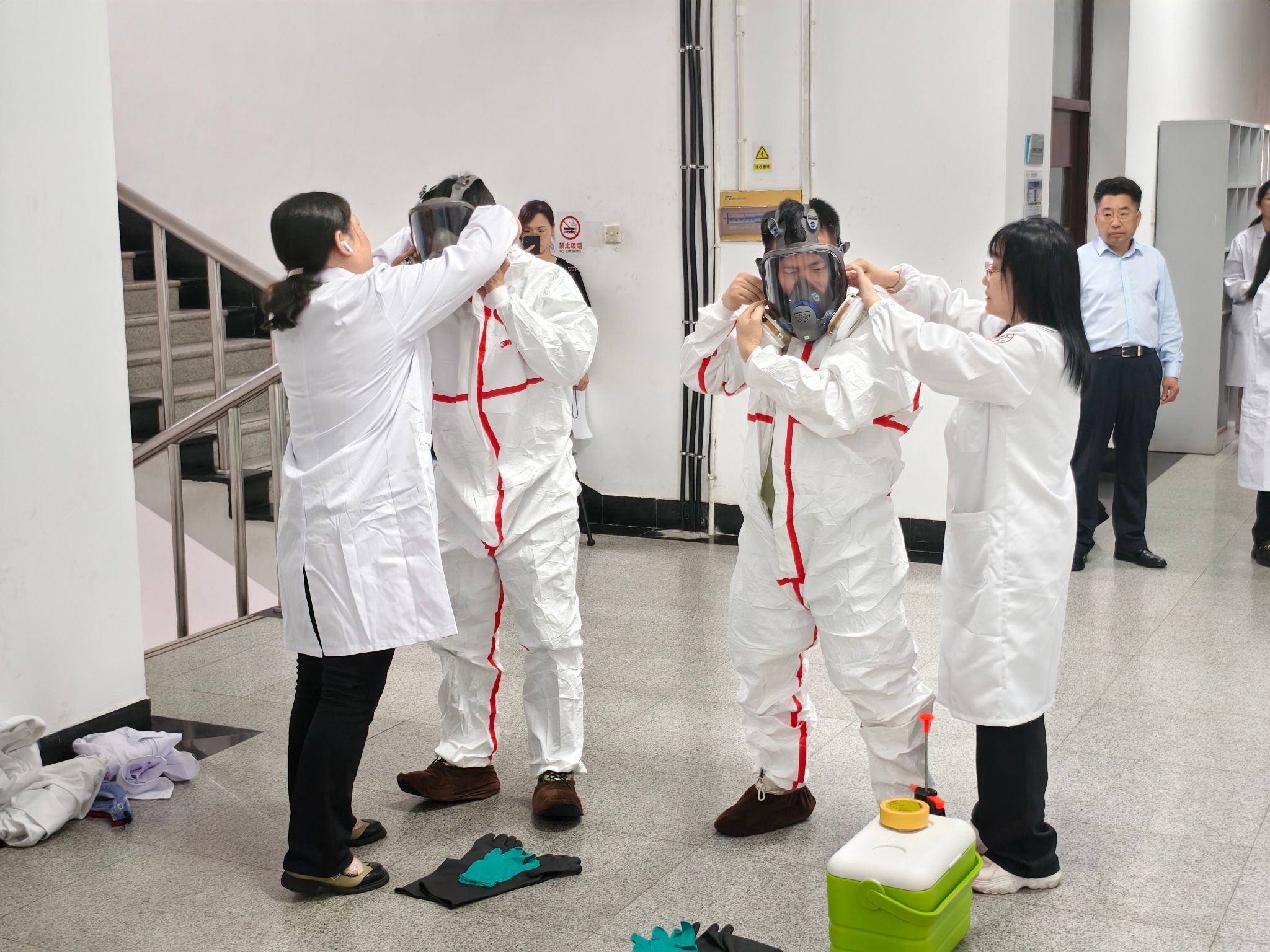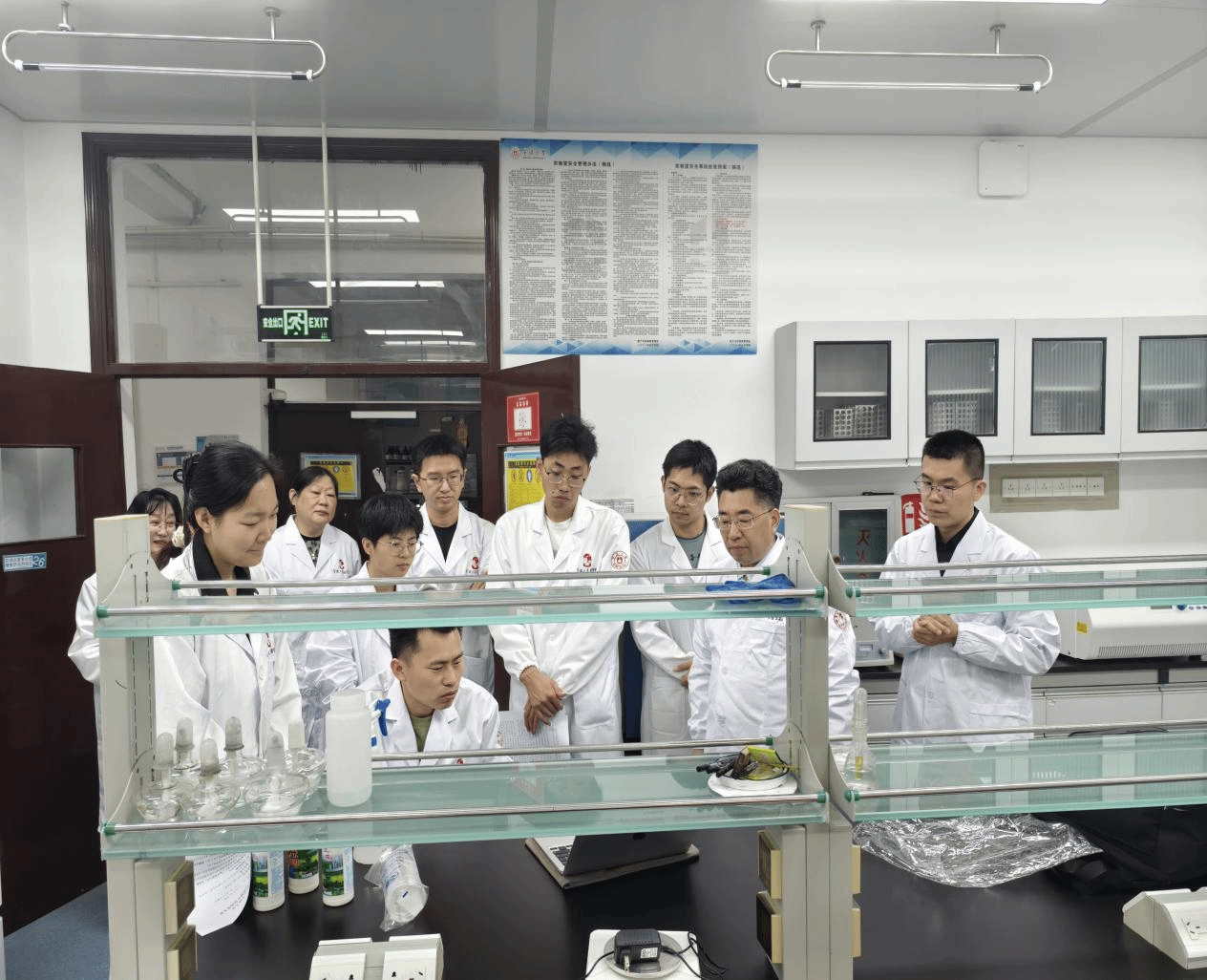To enhance the level of biosafety protection and strengthen the emergency response capabilities for biosafety incidents, a "Laboratory Biosafety Emergency Drill" was held on May 31 at the Health Science Center. The event was organized by the University's Department of Assets and Laboratory Management, with collaboration from the Health Science Center. Zhang Chundan, the Deputy Director of the Department of Assets and Laboratory Management, and Xu Guozhang, the Deputy Director of the Health Science Center, were present to guide the exercises. Approximately 60 staff members from relevant functional departments and representatives of teachers and students from the Health Science Center participated in the live drill and watched the video broadcast.

The "Laboratory Biosafety Emergency Drill" officially commenced in Microbiology Teaching Laboratories 306-308 of the Basic Medical College at the Health Science Center. A scenario was simulated wherein a lab worker accidentally drops a petri dish containing flu virus cultures while transferring it in a biosafety cabinet, causing the solution to splash. The drill then demonstrated the emergency response procedures, with Xu Guozhang serving as the chief commander. Members of various emergency teams, including personnel from the Health Science Center's Department of Assets and Laboratory Management, teachers from the Basic Medical College's Microbiology Laboratory, and student representatives, cooperated closely to execute emergency measures such as immediate disposal, evacuation, incident reporting, and on-site handling of contaminated areas. The effectiveness of the decontamination was evaluated by relevant teachers from the Basic Medical College. The entire exercise was well-organized and smoothly executed, achieving its intended goals.

Following the drill, Xu Guozhang delivered a summary speech. He emphasized that the importance of laboratory biosafety management cannot be overlooked. It is crucial to place high emphasis on biosafety management in laboratories, enhance mutual cooperation during emergencies, solidify personal biosafety protection measures, and improve the pertinence, practicality, and operability of emergency plans. This ensures complete emergency functions, appropriate personnel allocation, sufficient equipment, and timely responses.

The "Laboratory Biosafety Emergency Drill" is one of the activities of Ningbo University's Laboratory Safety Month in 2024. It not only enhanced the awareness of biosafety among teachers and students but also made a positive contribution to the construction of a safe campus culture.